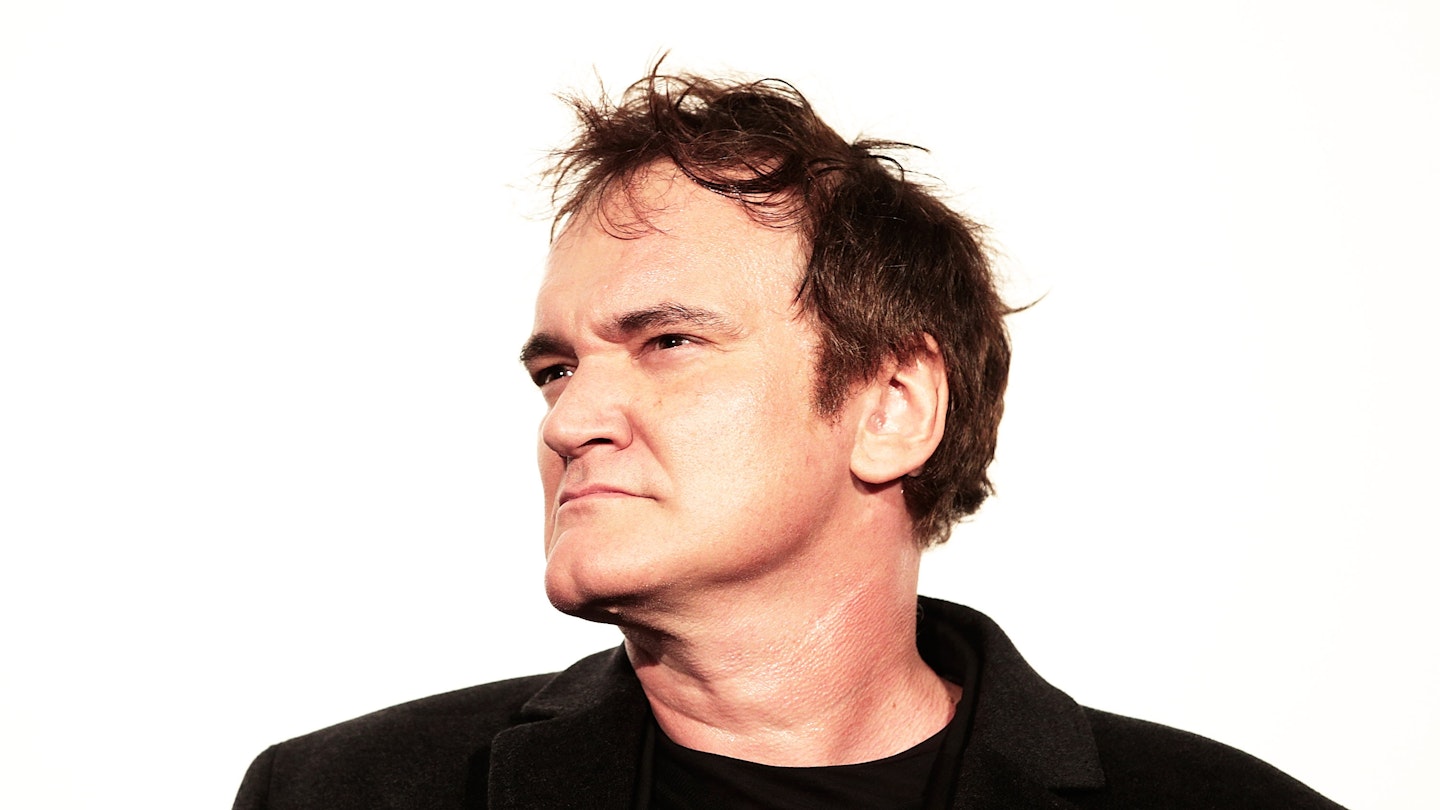Today – if you're reading this on March 27 – is Quentin Tarantino's birthday. To mark the occasion, we've assembled a compendium of classic Tarantino tricks and trademarks in celebration of the world's biggest geek director. Welcome to the alphabetical anthology of a true movie original...
A – AK-47
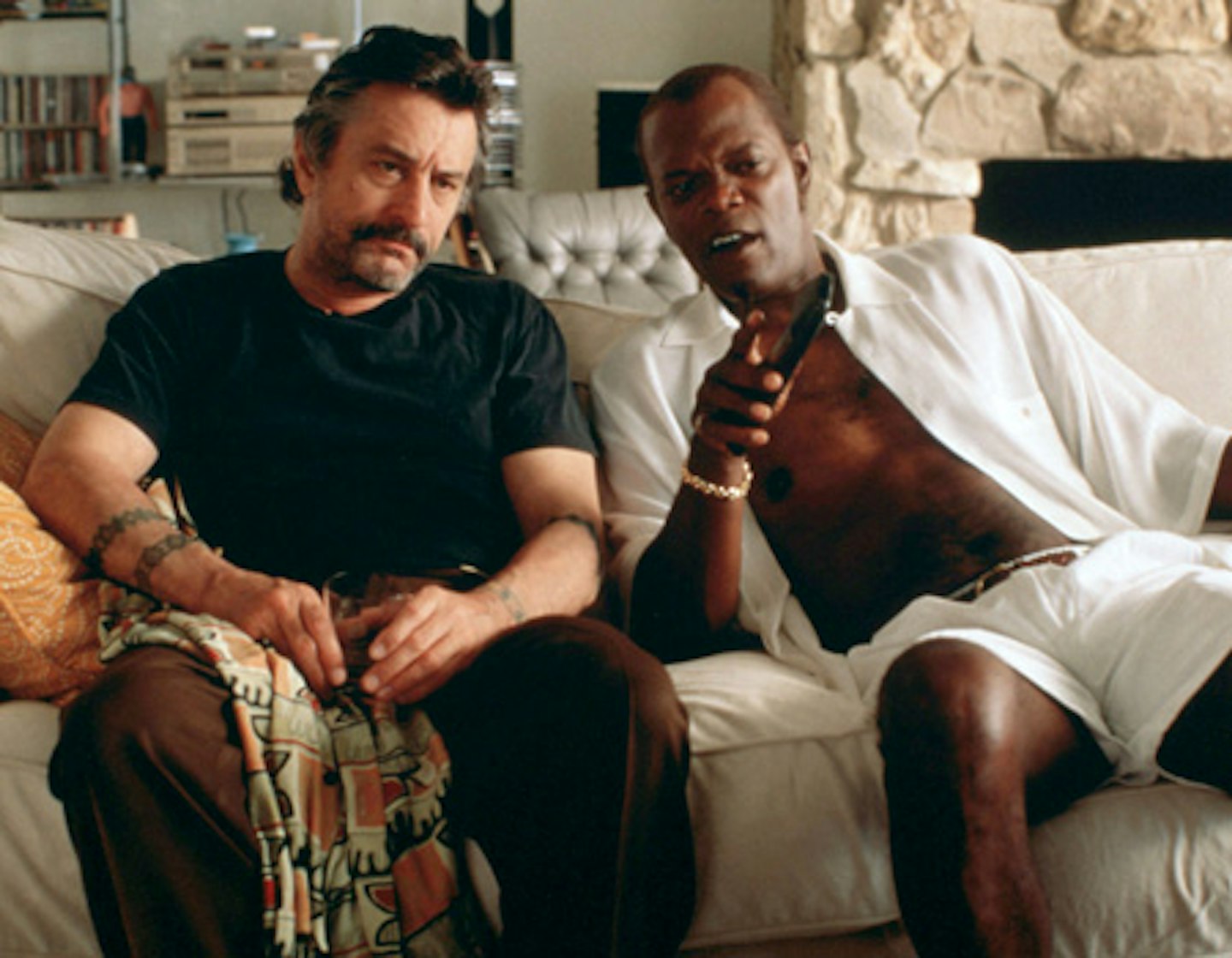
"When you absolutely, positively got to kill every motherfucker in the room, accept no substitutes." One of Tarantino's most famous lines succinctly makes the case for the iconic Russian assault rifle, but in truth he's always been one to make use of distinctive weaponry. Our favourite is the Hattori Hanzo sword from Kill Bill - able to slice through bone as easily as paper - but who could forget Reservoir Dogs' razor, Death Proof's Chevy Nova or Jules' Silver Star Model B in Pulp Fiction.
B – Big Kahuna Burger
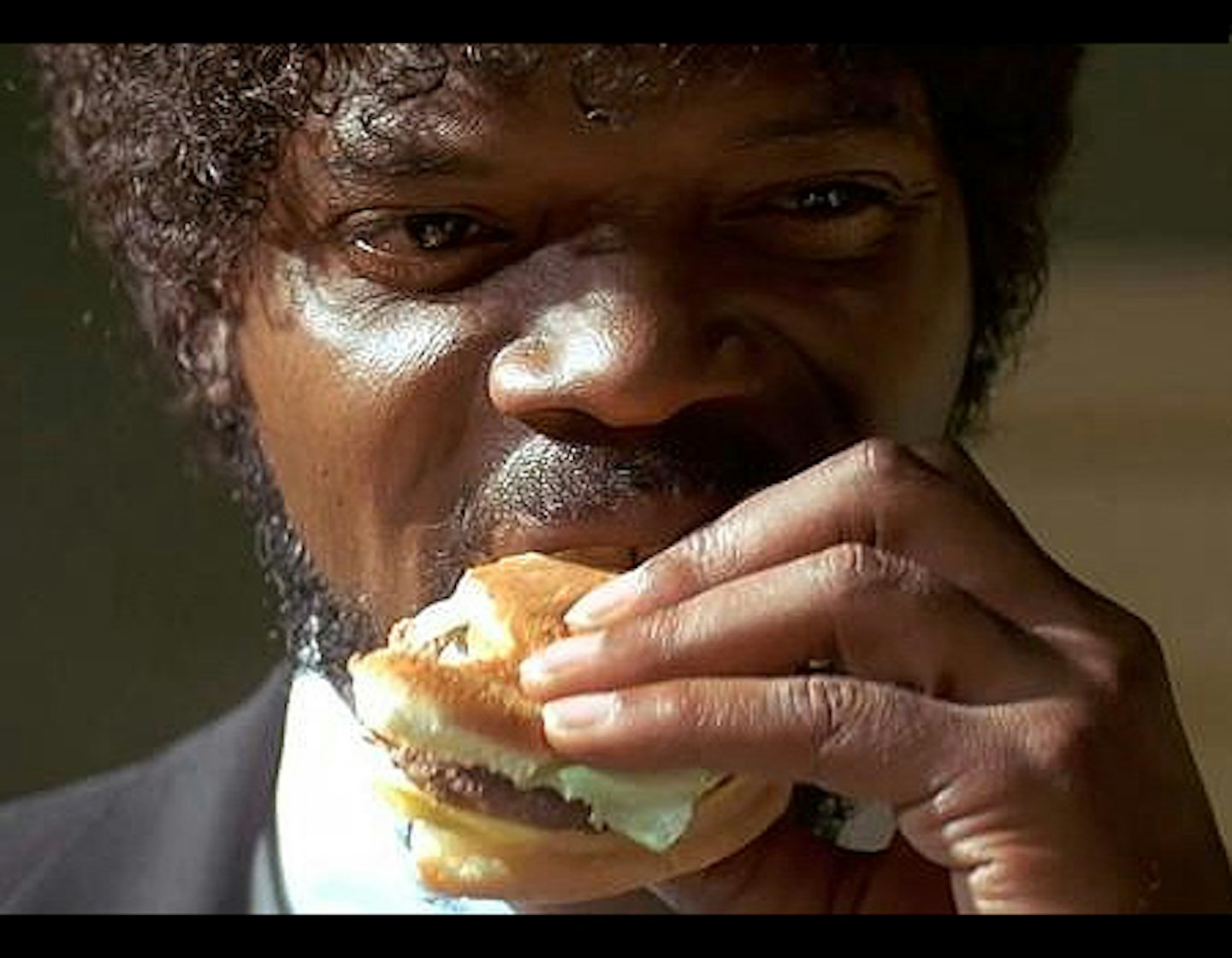
Product placement is nothing new in movies, but made-up product placement is. Tarantino's manufactured manufacturers furnish his movies with quirky brands that serve a dual purpose: riffing off pop culture (Teriyaki Donut, anyone?) while enhancing a parallel Tarantino-designed universe where anything goes, and usually does. From G.O. Juice to Red Apple Cigarettes, these post-modern props pop up across the QT canon, with Hawaii's own Big Kahuna Burger chain making the most appearances. It turns up in Pulp Fiction, From Dusk Till Dawn, Death Proof, and even sneaks an appearance in Tarantino's section of Four Rooms. After all, it is a tasty burger.
C – Cameos
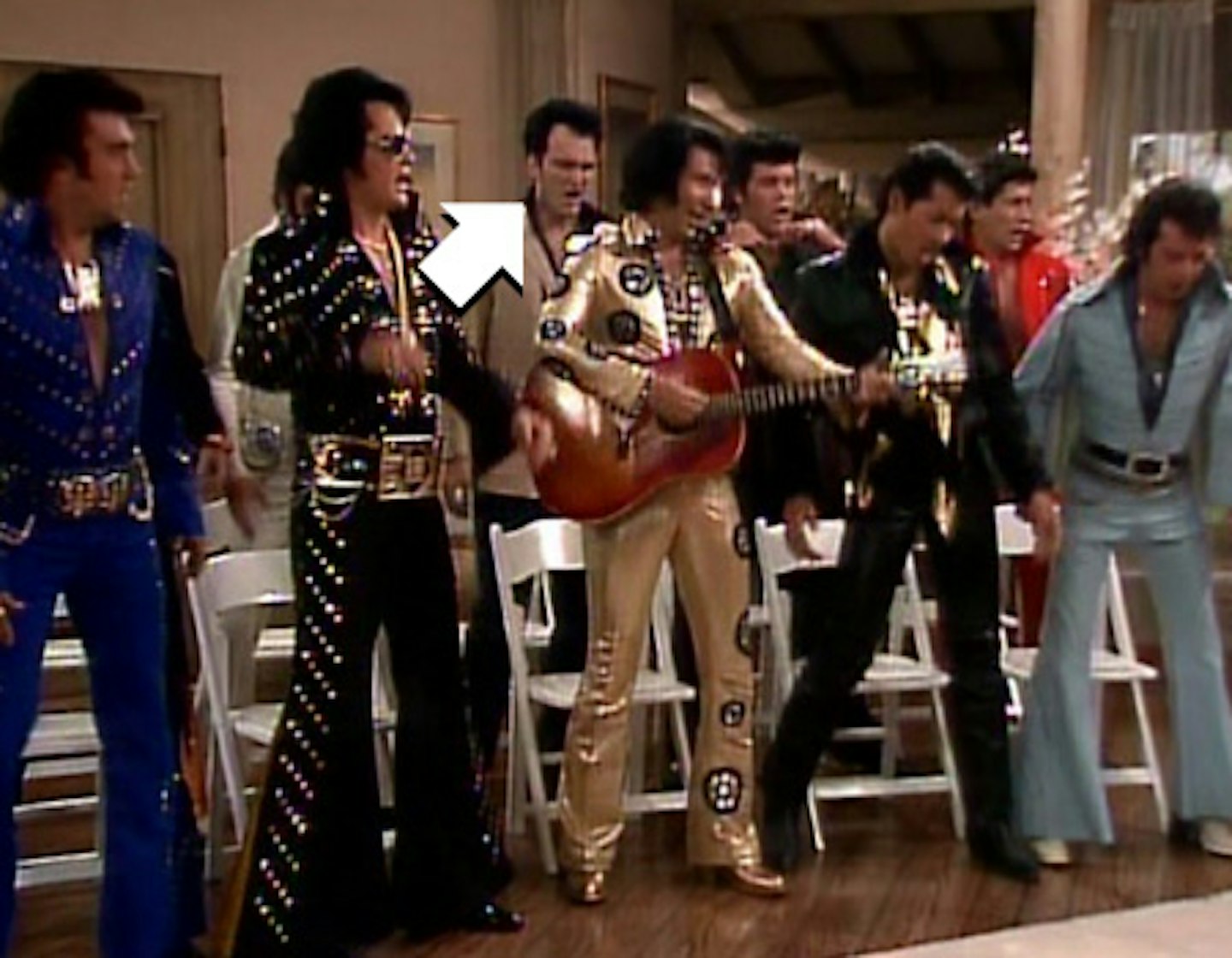
As a movie lover first and foremost, Tarantino landed the odd acting job - most lucratively in a tiny appearance on The Golden Girls as an Elvis impersonator, the residuals of which kept him ticking over as he put the finishing touches on his early screenplays - and he's never really quit. He's taken acting roles from the smallest bit parts - his schmo in Desperado, a rapist in Grindhouse - to leading roles - From Dusk Till Dawn.
D – Dialogue
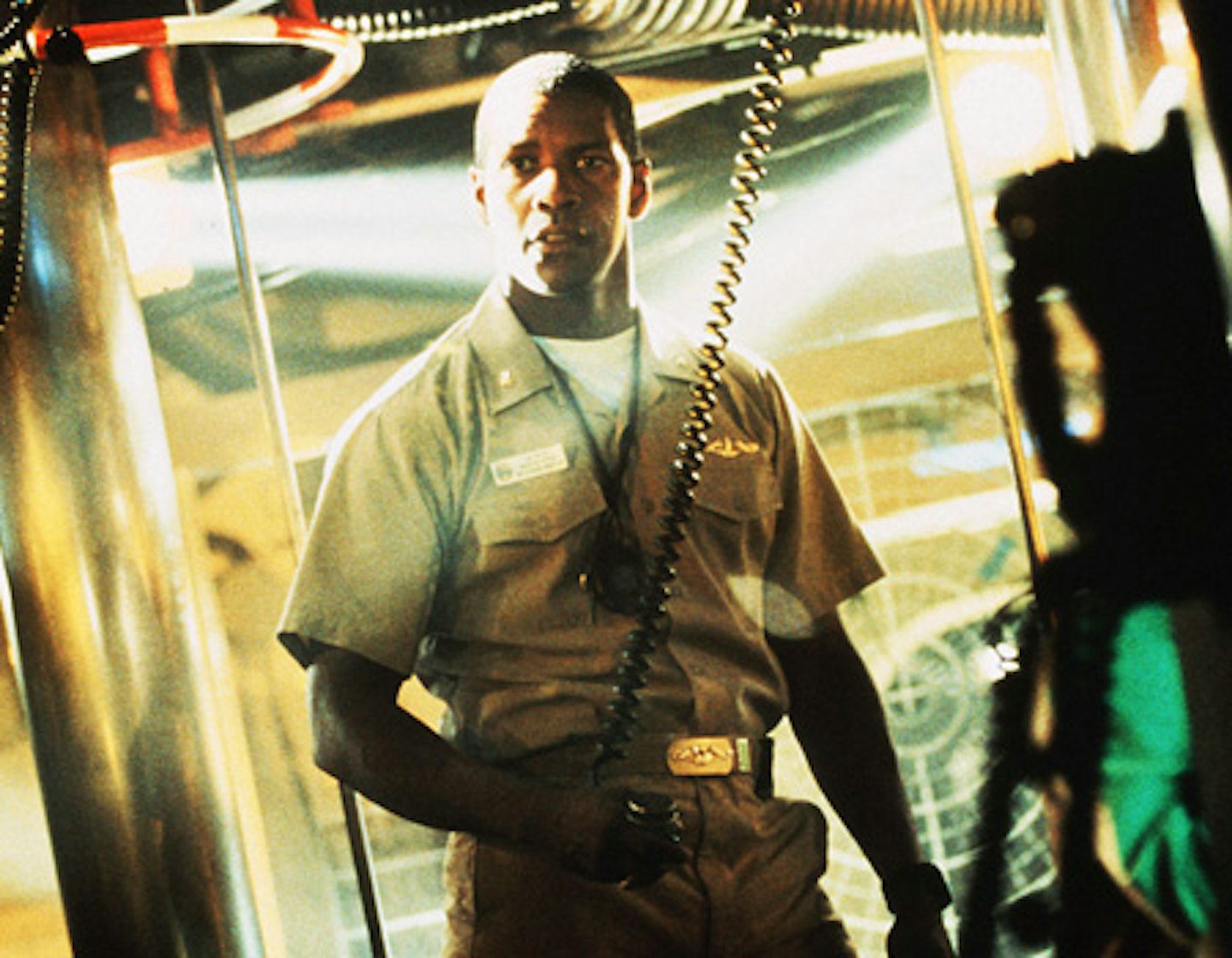
Tarantino loves him some good talking and the motormouth director tends to imbue his characters with similar traits, making them equal parts loquacious and geeky. Consider, for example, Denzel Washington's Lt. Commander Ron Hunter in Crimson Tide, announcing that the "Kirby Silver Surfer is the only true Silver Surfer". Or Bill discussing the Bride's resemblance to Superman. Or Christoph Waltz’s Dr. Schultz recounting the legend of Broomhilda. Or the Dogs discussing Madonna. Or even his CSI characters discussing a vintage Dukes of Hazzard board game. Tarantino's stories might be compelling but its his gift for endlessly quotable dialogue that has made him an auteur.
E – Ezekiel 25.17
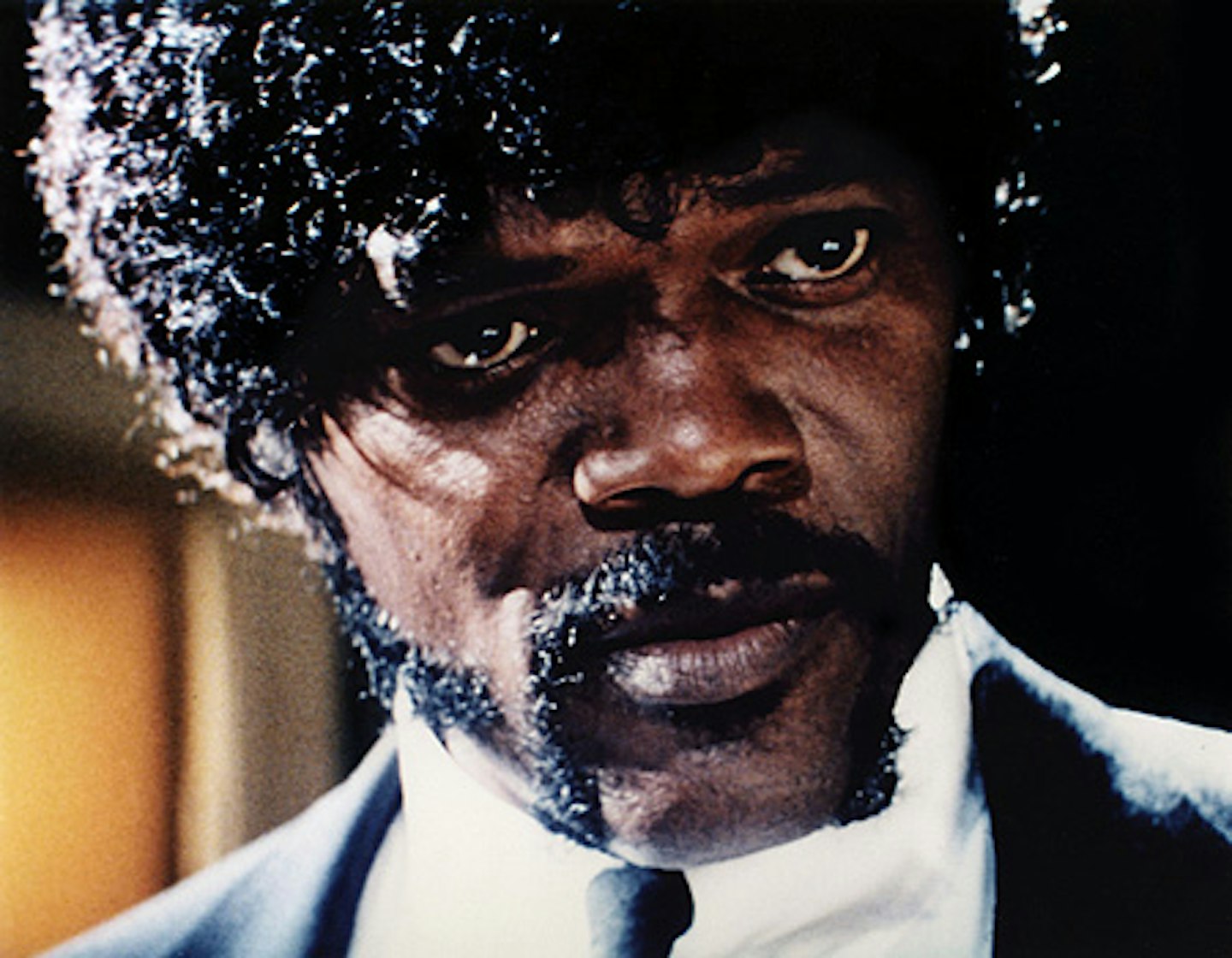
"And you will know my name is The Lord when I lay my vengeance upon you!" The oft-quoted, semi-apocryphal bible verse is the missing link between Pulp Fiction's disillusioned hitman Jules Winnfield, Sonny Chiba's karate-kicking vigilante, and Old Testament enforcer Ezekiel. If this snippet of dialogue is anything to go by, exiled Judean holy men were not to be trifled with, except perhaps by Sonny Chiba, from whom Tarantino borrows most of the quote. Jules dispatches his victims to the next life with the words Chiba uses during Karate Kiba's opening credits ("I am Chiba the Bodyguard when I shall lay my vengeance upon them!") to forewarn drug-dealers of their coming fate. Sanctioned by God, no. Prophetic, yes.
F – Foot Fetish
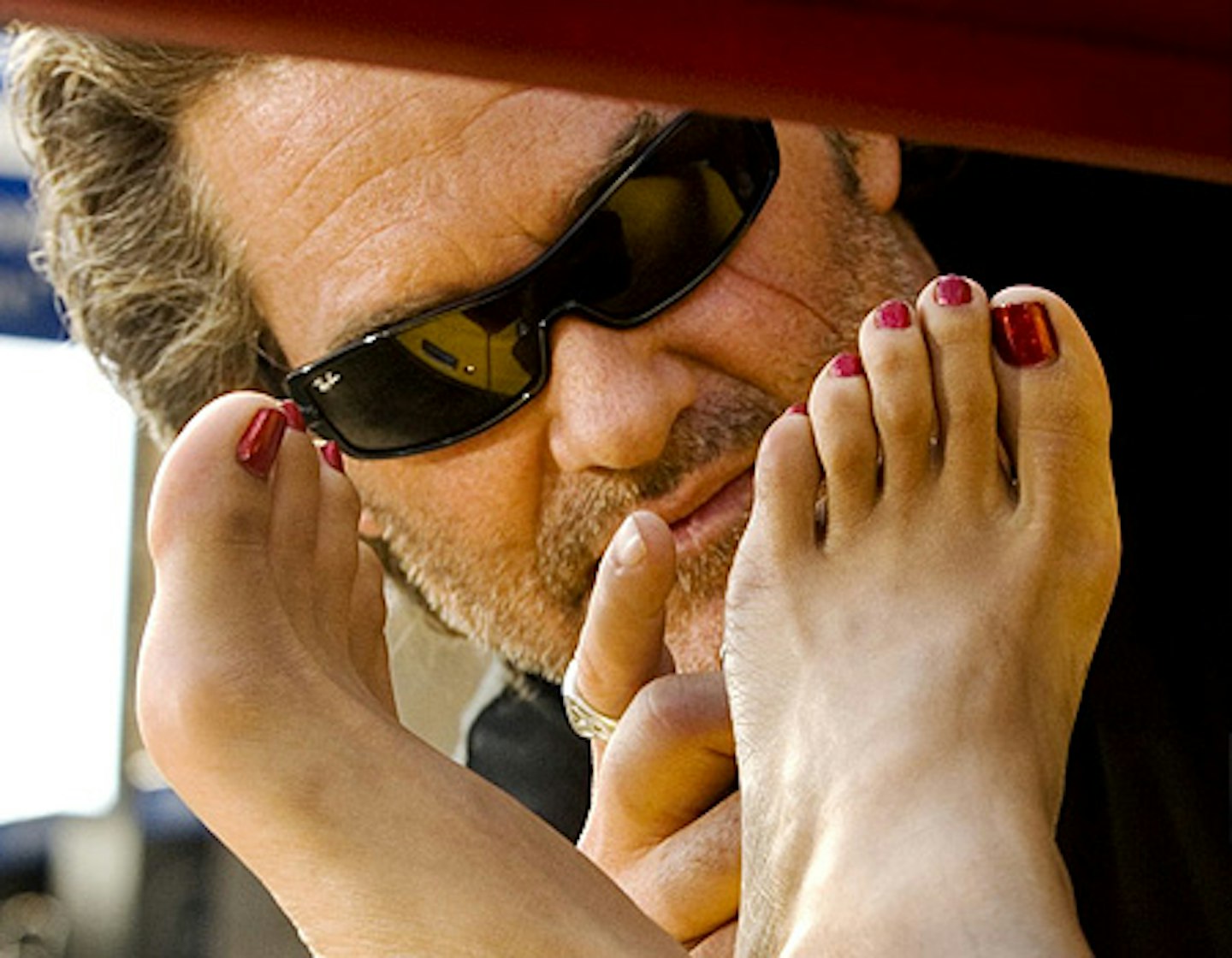
Many directors leave their fingerprints all over their films, Tarantino leaves shapely footprints. The director has long been persuading his leading ladies to strip off their sandals and show off their pedicures as the camera lingers on their tootsies. Bridget Fonda, Uma Thurman, Rosario Dawson, Diane Kruger and Kerry Washington have all gone barefoot for him, and in Pulp Fiction Vince Vega and Jules Winnfield discuss the strangely intimate nature of feet. It's worth noting that showing one's feet tends to be followed by acts of extreme violence - so maybe we should add another point to the rules of surviving a movie: no sex, no drinking, no drugs, no feet.
G – Geek
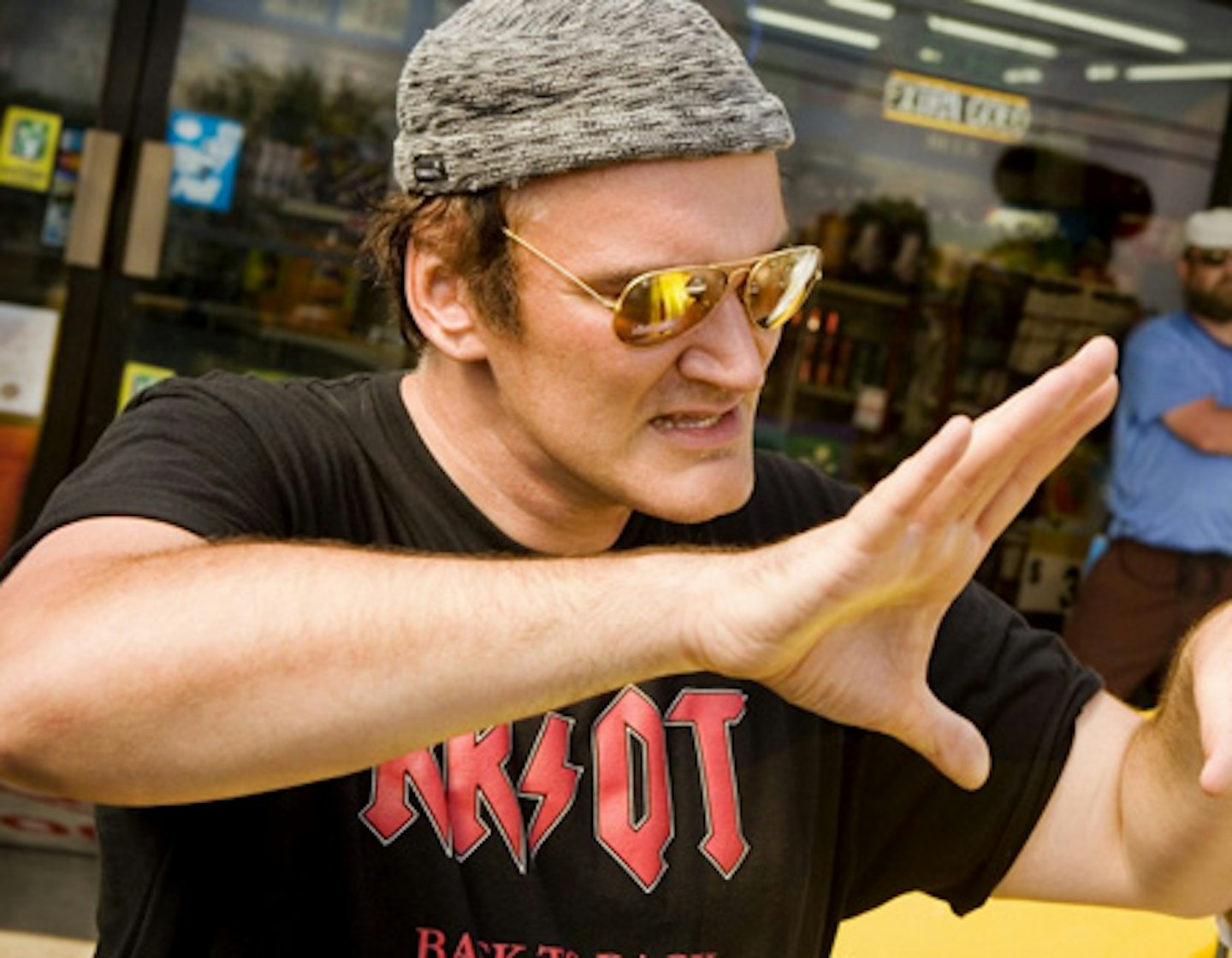
When Manhattan Beach's Video Archives took on Tarantino as a clerk, little did they know they'd actually hired IMDb in disguise. Tarantino's film knowledge is second to none and has helped spice his movies with hundreds of movie references, both obscure (Toshiya Fujita's Lady Snowblood inspired Kill Bill's winter duel) and more obvious (Jackie Brown's credits mirror The Graduate's). At Video Archive, he and Pulp Fiction collaborator Roger Avary would stick on cult favourites and pass the time plotting the movies they'd make. As long-time producing partner Lawrence Bender said, "Although Reservoir Dogs was his first movie on celluloid, he'd made ten movies in his head." QT put it differently: "I just, like, looked at directors who did really cool independent films. That's who I wanted to be."
H – Hostel
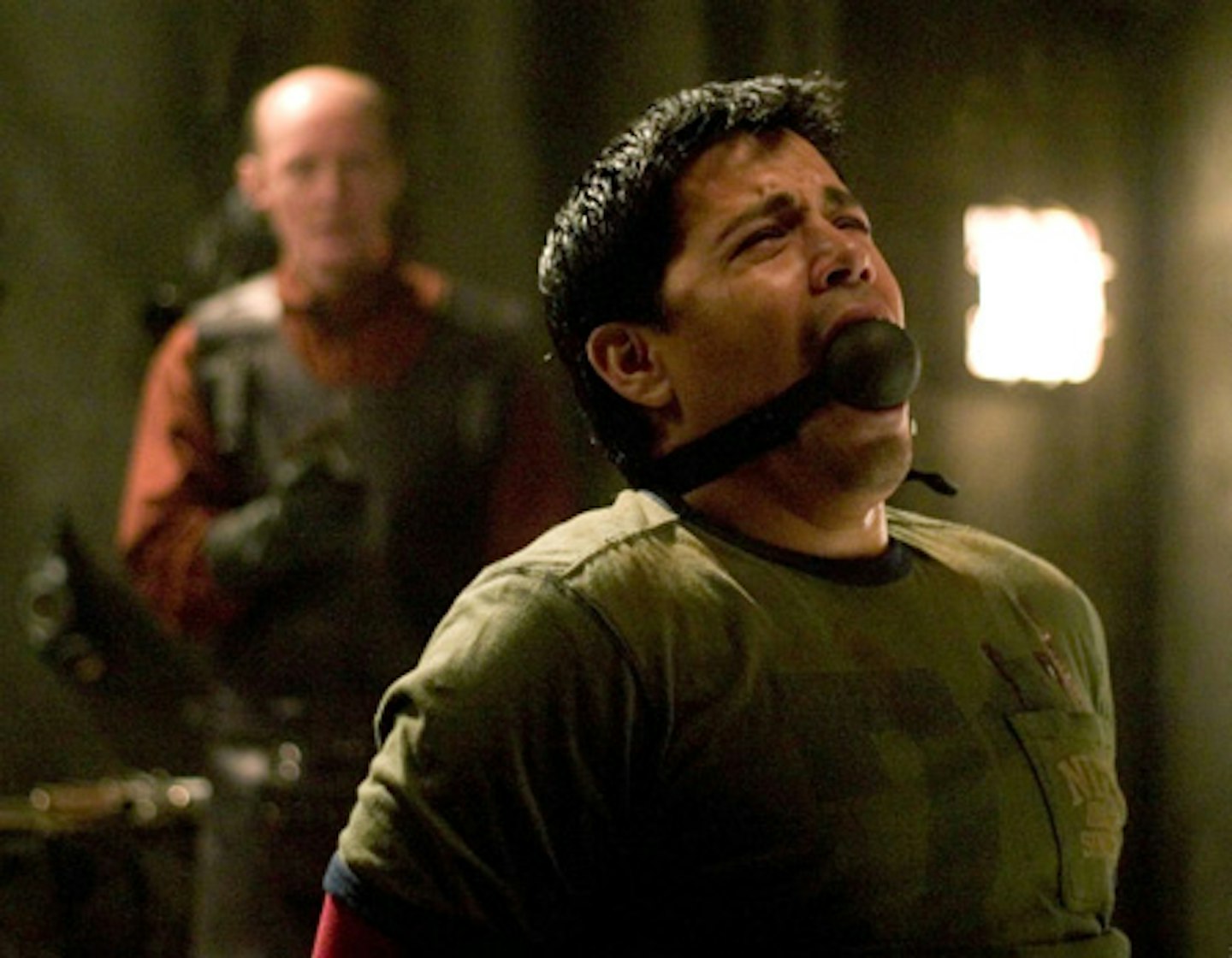
Eli Roth, Basterds' bat-wielding 'Bear Jew', first partnered up with Tarantino on his grindhouser Hostel which came with the highly marketable 'Quentin Tarantino presents' tag. It's one of QT's executive-producer gigs which, like 2008 biker B-movie Hell Ride, are usually more hands-on than honorific. After seeing Cabin Fever, Tarantino invited Roth to one of his movie nights and, presumably over chips and dips, encouraged his idea for a horror set in a part of Eastern Europe travel guides rarely get to. He later helped Roth edit the script, and came up with ideas to secure Hostel its 'R' rating. To prove lightning does strike twice, he repeated the trick on Hostel 2.
I – Inglorious Bastards
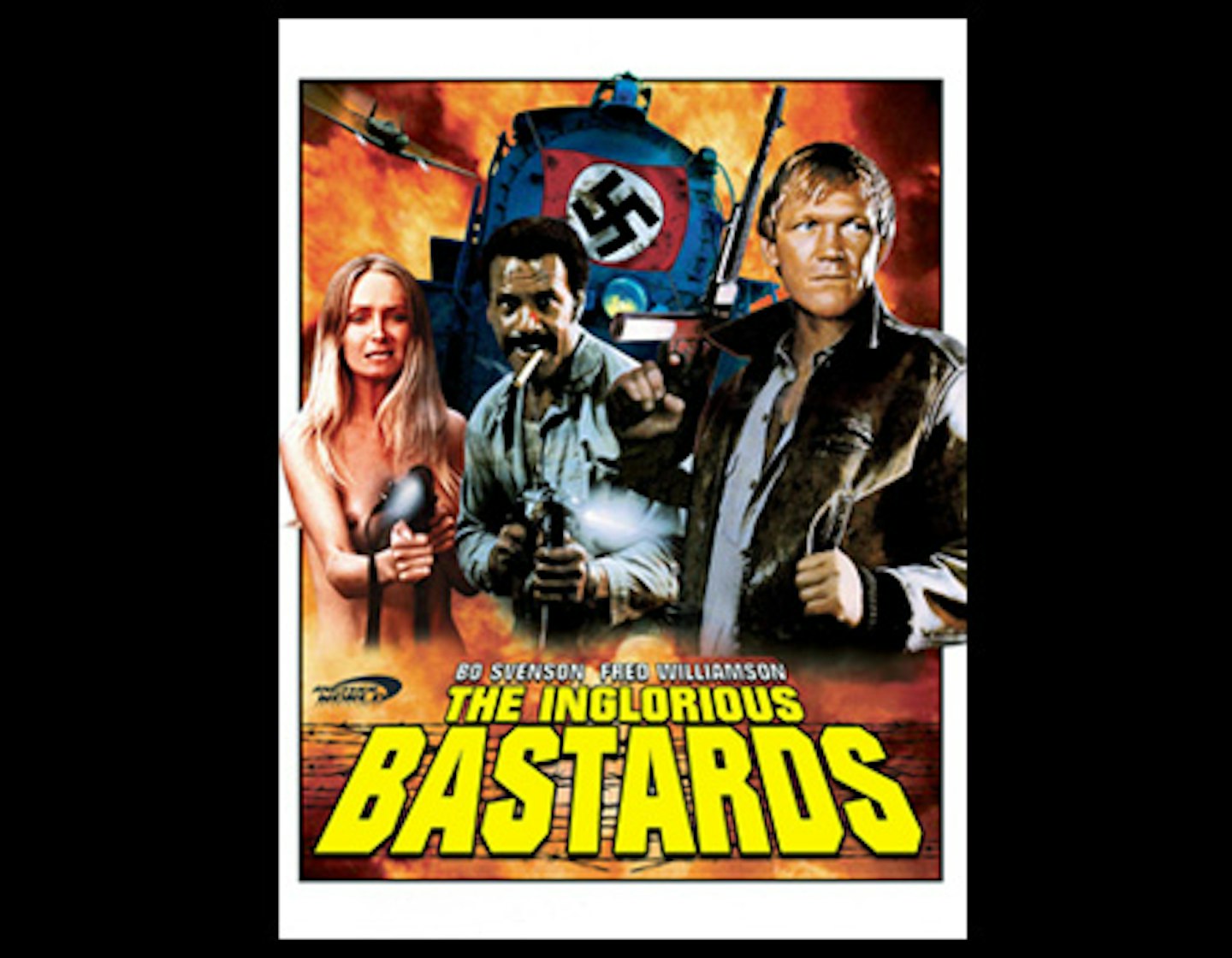
The grammatically-correct precursor to Basterds is the handiwork of B-movie director Enzo G. Castellari, whose spaghetti shoot-outs were another big influence on Tarantino. Castellari was king of '60s and '70s Italian genre cinema, making gangster flicks, Westerns and war movies with awesome titles like Go Kill Them All And Come Back. 1978's Inglorious Bastards, AKA 'That Damned Armoured Train', is like 12 war films rolled into one, in which a group of imprisoned G.I.s commandeer a train and head for Switzerland and freedom, before changing their minds and invading Germany instead. Keep your eyes peeled in Basterds for a Castellari cameo as a German officer.
J – Jack Rabbit Slim's
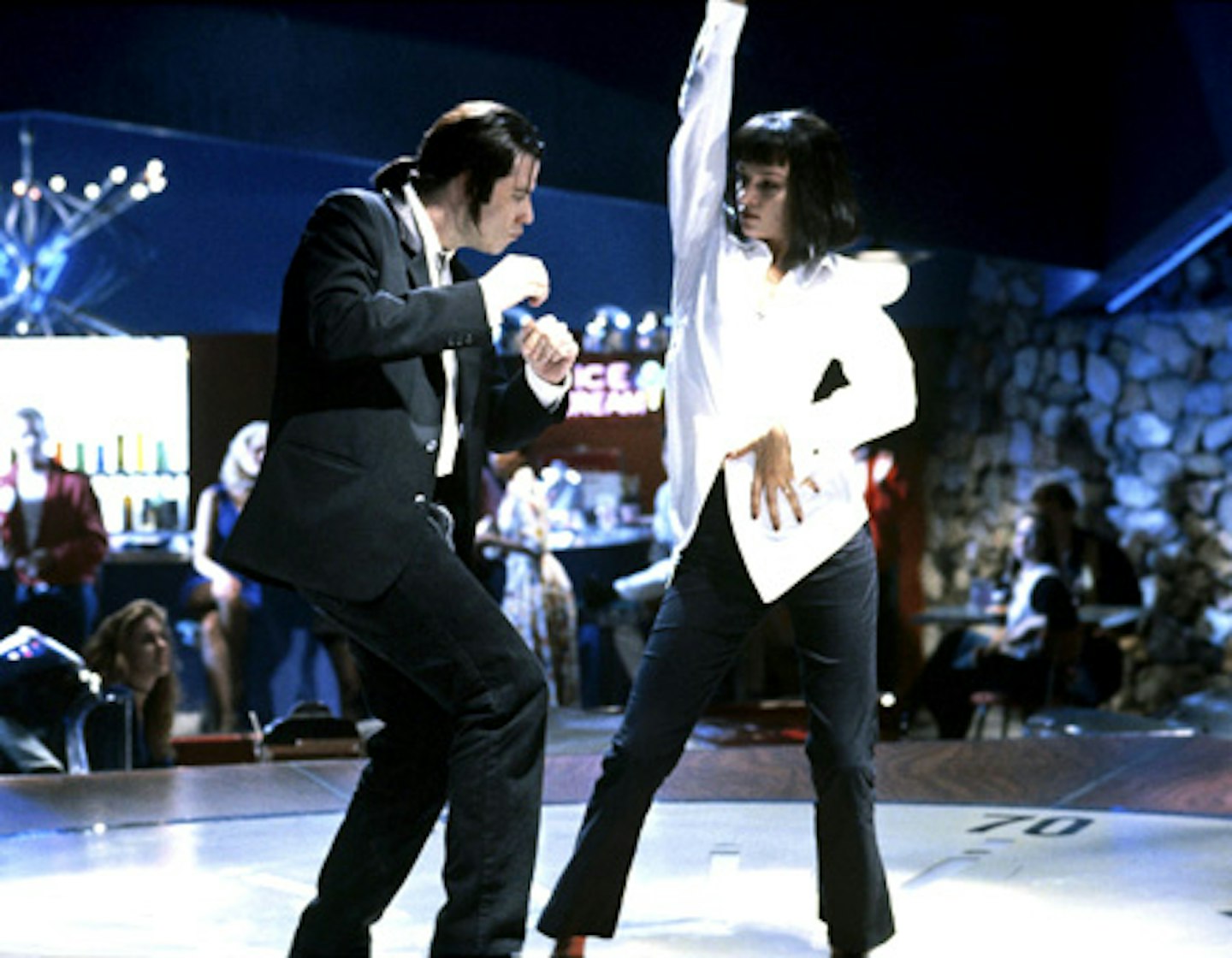
Nineties university students were subjected to near endless replayings of the Pulp Fiction soundtrack, but you've got to give the man his due: QT knows how to put a soundtrack together. From the twist contest at Jack Rabbit Slims', to his use of Morricone, ear-cutting to the tune of Stuck In The Middle With You, and O-Ren Ishi's slo-mo entrance to Battle Without Honor Or Humanity, Tarantino has a genius for using music. Even the fantastically anachronistic Bowie tune in Basterds somehow works.
K – Kung Fu
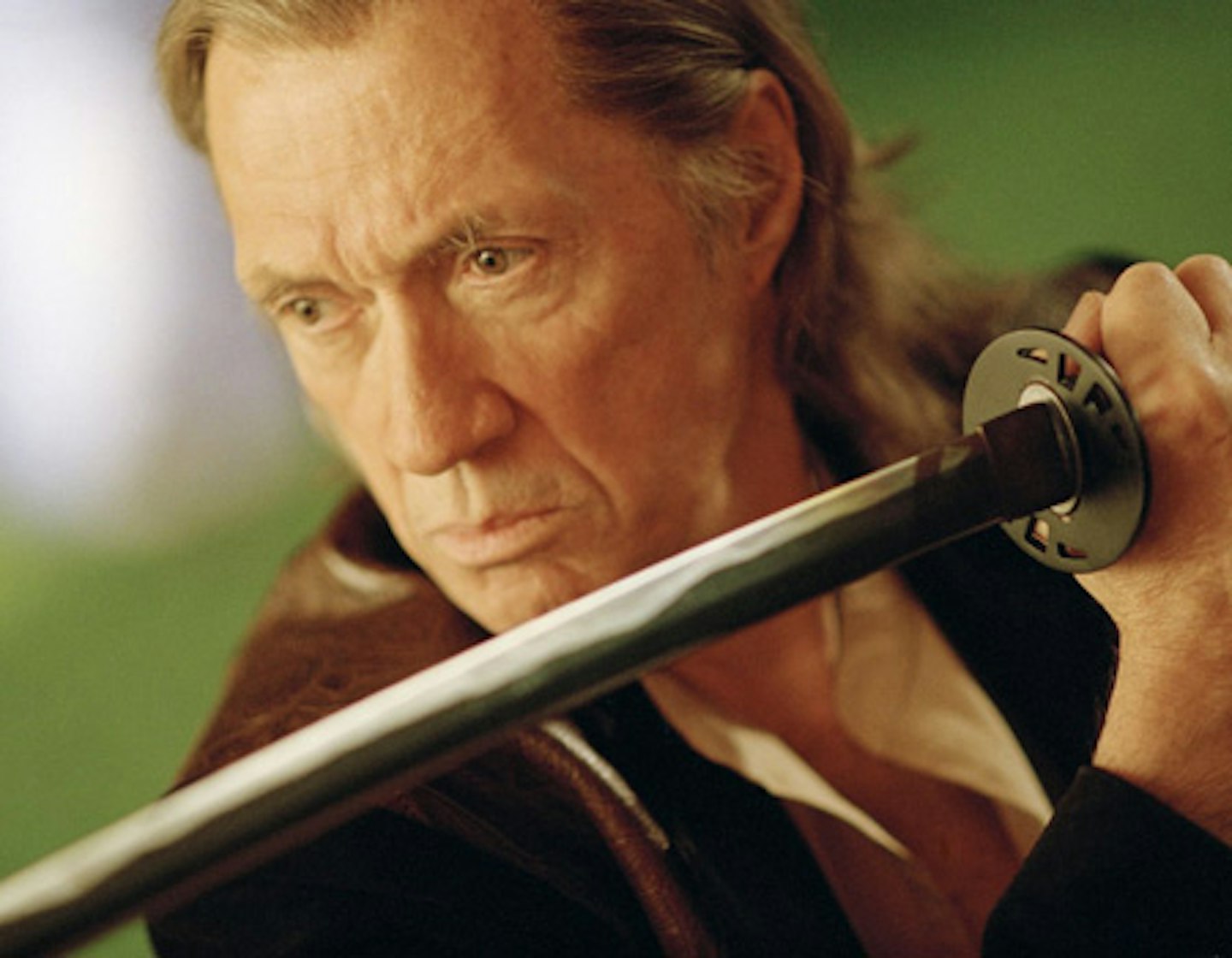
Decadent West met mystical East and got its ass kicked in this classic '70s series, in which shaolin-trained Kwai Chang Caine (David Carradine) roams the Old West, armed only with native cunning and a silky dressing gown. Along with fellow wushu wizard Gordon Liu and Sonny Chiba, Carradine's appearance helped turn Kill Bill 1 & 2 into a 'spot the homage' competition for martial arts fans. Carradine even brought along one of his Kung Fu souvenirs: the flute he played in the series.
L – Samuel L. Jackson
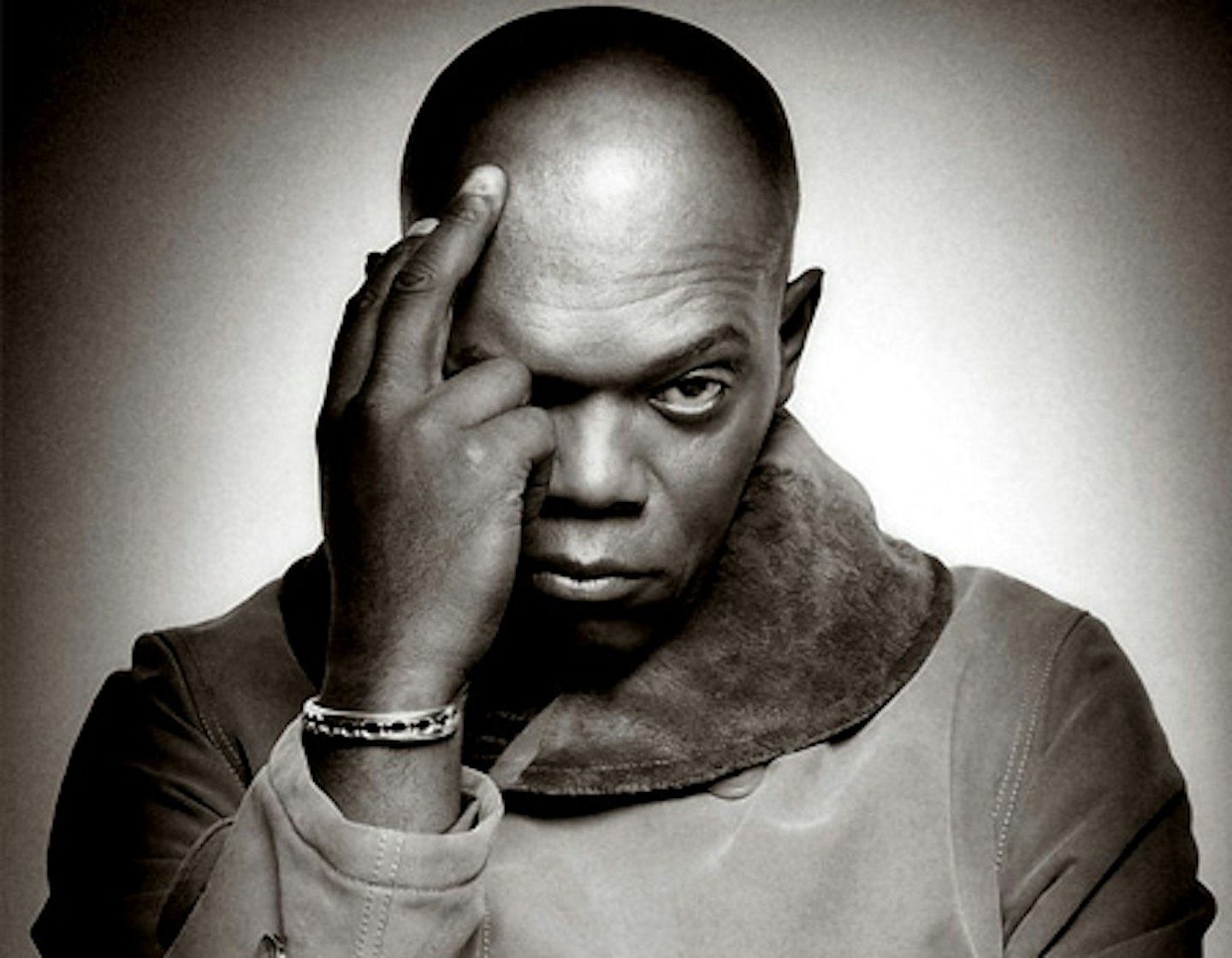
Jackson has worked with Tarantino seven times: True Romance, Pulp Fiction, Jackie Brown, Kill Bill Vol. 2, Inglourious Basterds (as narrator), Django Unchained, and The Hateful Eight. It's clear that the pair are simpatico: both are intelligent, outspoken and a lot geekier than Jackson at least is generally given credit for. But there's also an argument that they made each other's careers. Could Pulp Fiction have worked with anyone but Jackson as Winnfield? And would Jackson ever have reached the heights of fame he now occupies had he continued to be pegged as a sometime-Spike Lee star? That 'L' stands for Leroy, but then you knew that.
M – Mexican Standoff
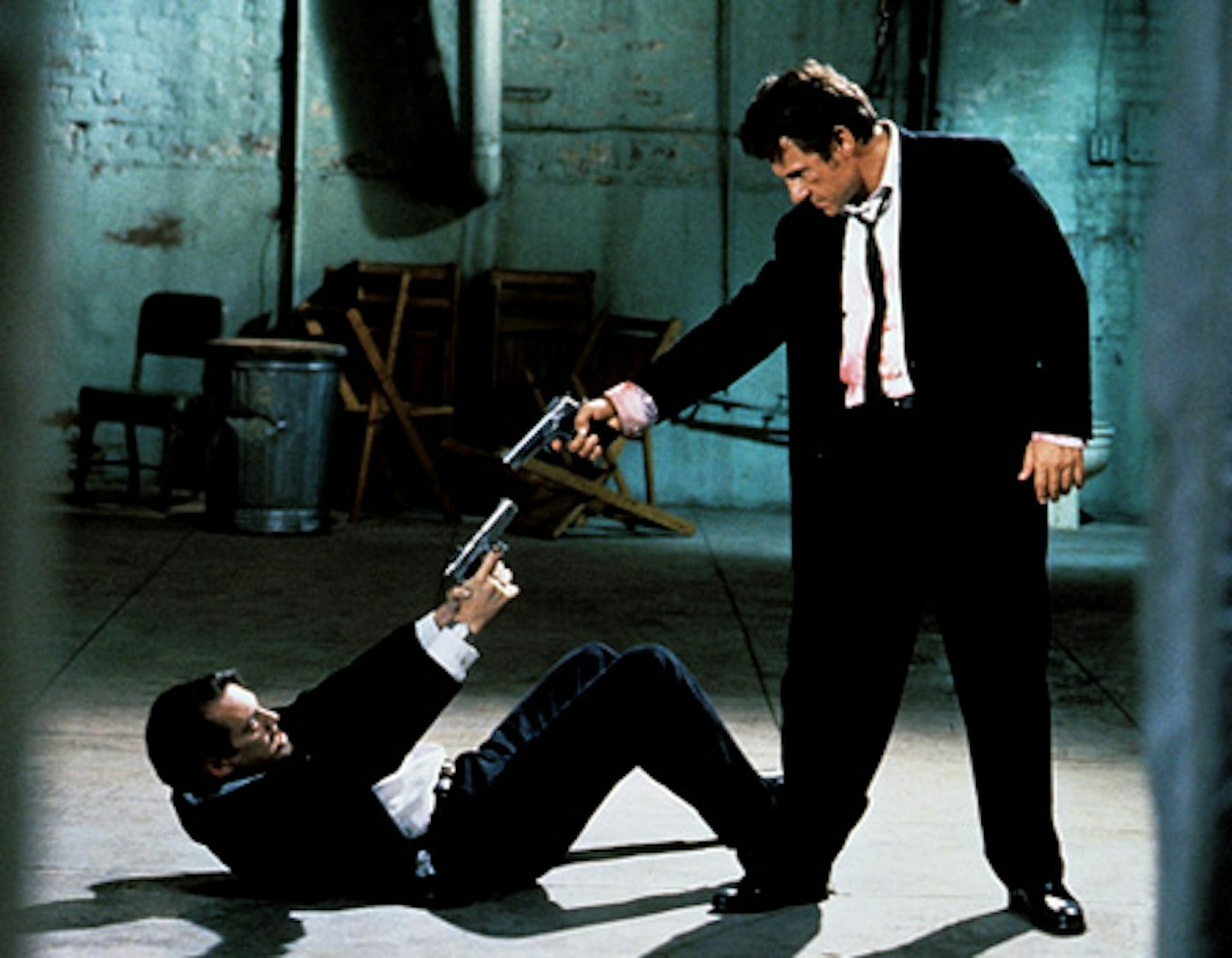
They say (and we have been unable to disprove) that the first time three characters or more held a gun on each other was in The Good, The Bad And The Ugly, one of Tarantino's favourite films. But the director made it his own trademark, moving from the memorable Reservoir Dogs finale to the bigger samurai sword stand-off of Kill Bill Part I. While the director's penchant for ultra-violence is often criticised, his fondness for the Mexican standoff implies a nod to its ultimate futility.
N – Nazis
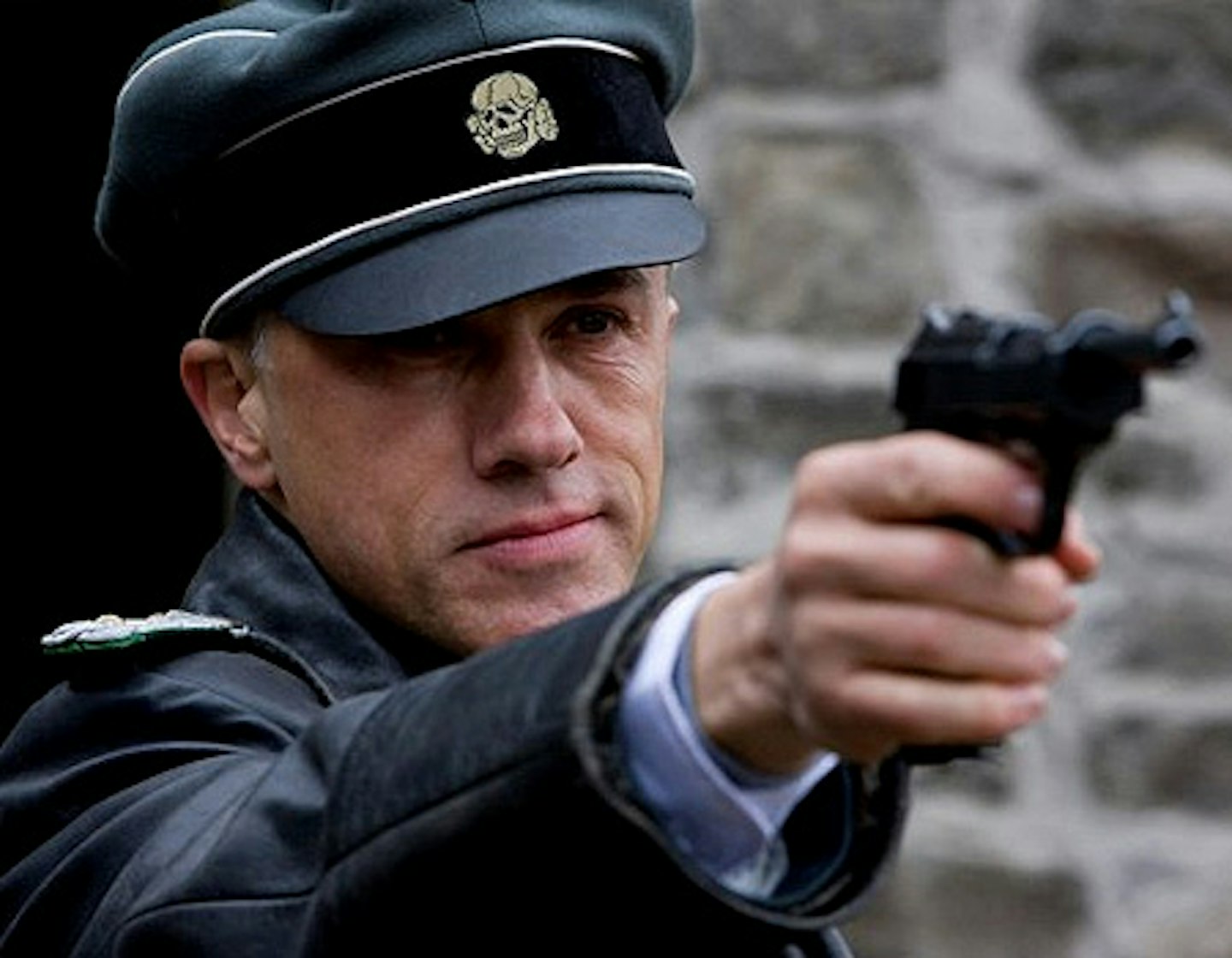
Along with the English aristocracy, big business, and the bit of the ocean where mental sharks are born, The Third Reich has given cinema many of its most memorable villains. There have been 'good Nazis' (Tom Cruise, James Mason), 'Following-orders' types (Maximilian Schell, James Coburn, Michael Caine), and card-carrying psychopaths (Ralph Fiennes, Lawrence Olivier, the entire cast of Come And See). Tarantino clears a space in that last list for the charismatic Christoph Waltz, Inglourious Basterds' notorious 'Jew Hunter', SS Col. Hans Landa. It's a chilling performance from Waltz, one made all the more impressive considering he carries it off while smoking a gigantic novelty pipe.
O – Mr Orange
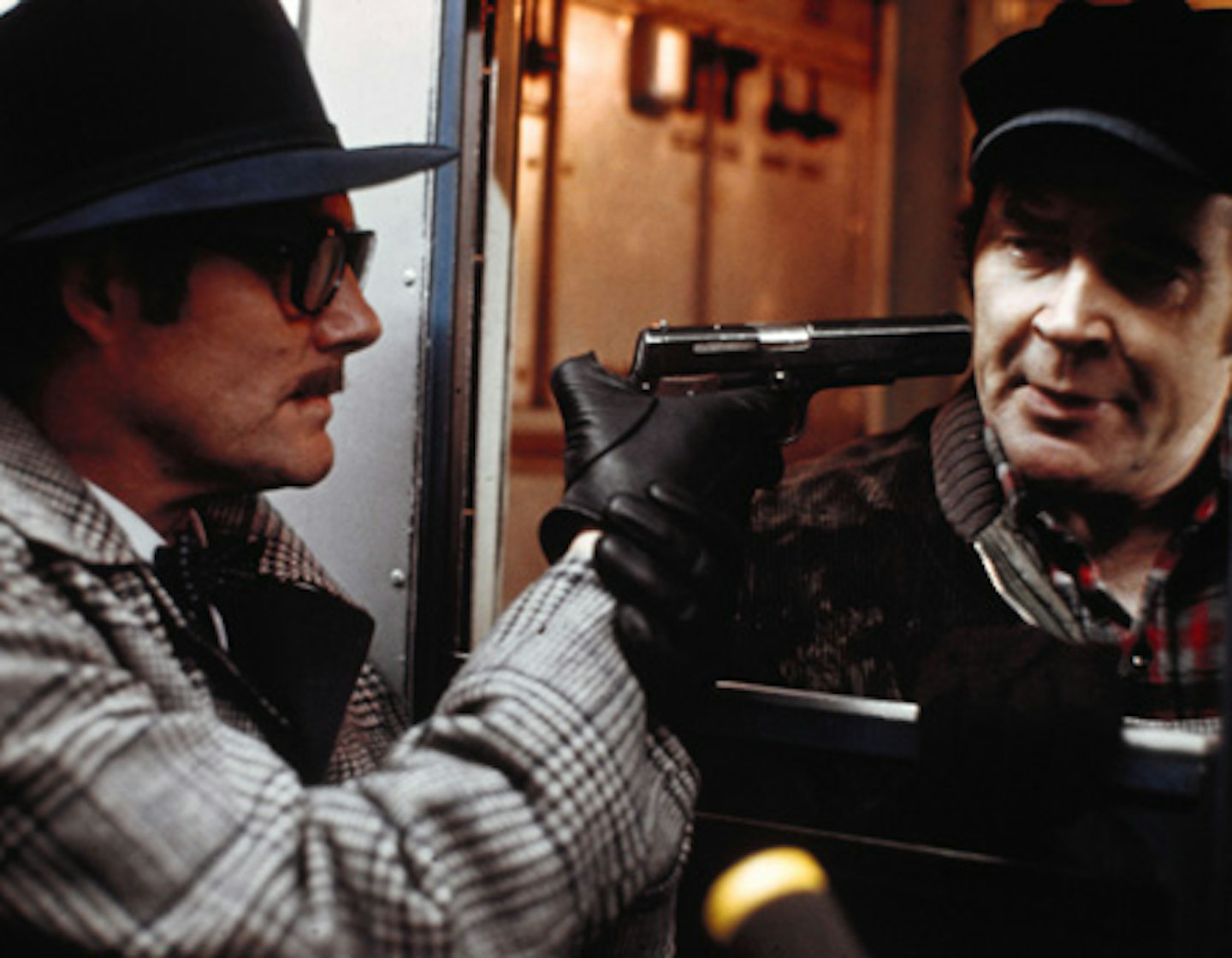
Long before Reservoir Dogs' colour-coded crims stuck up that LA jeweller, Mssrs Blue, Brown, Green and Grey were terrorising the New York subway with matching trenchcoats, submachine guns and seriously dodgy stick-on 'taches. The Taking Of Pelham One Two Three, Joseph Sargent's criminally-underrated '70s thriller, lent more than pseudonyms to Tarantino's debut, though. Distrust, cynicism and sarcasm coursed through its veins like electricity through a grid. It's a world-weariness shared by other Dogs' influences, John Huston's The Asphalt Jungle and Kubrick's The Killing. Tony Scott's Pelham remake meanwhile discarded Mr Blue but keeps the dodgy 'tache - see the original first.
P – Palme d'Or
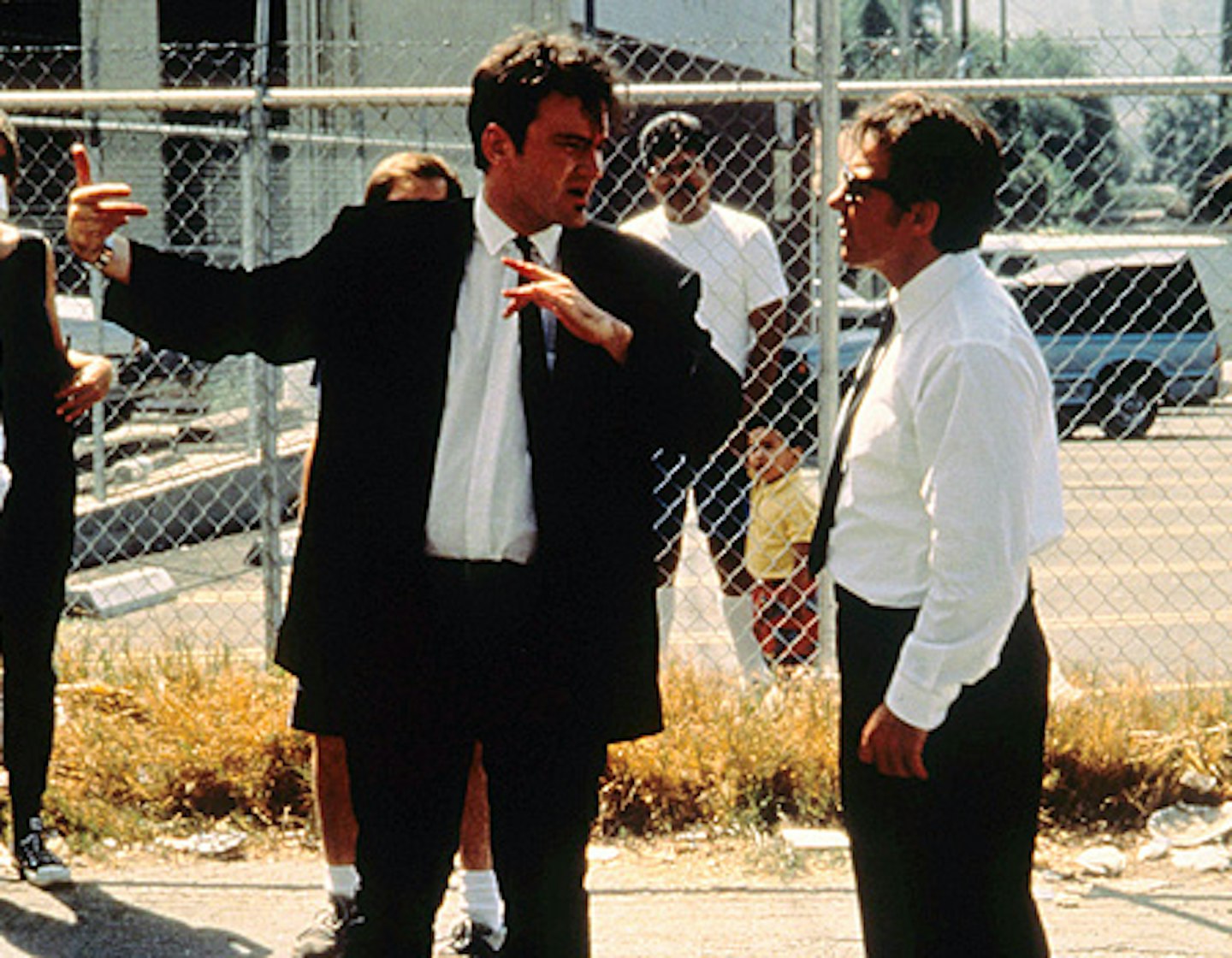
There's nothing the French love more than a good auteur, except maybe an auteur with a baguette, so it's no surprise they've taken Tarantino to their heart. Pulp Fiction's 1994 Palme d'Or win was controversial at the time (many favoured Kieslowski's Three Colours: Red), but it kindled an enduring love affair that culminated in QT's Cannes presidency ten years later. Tarantino's own passion for French cinema is reflected by A Band Apart, the production company he named after Godard's New Wave classic, Bande Á Part.
Q – Quiff
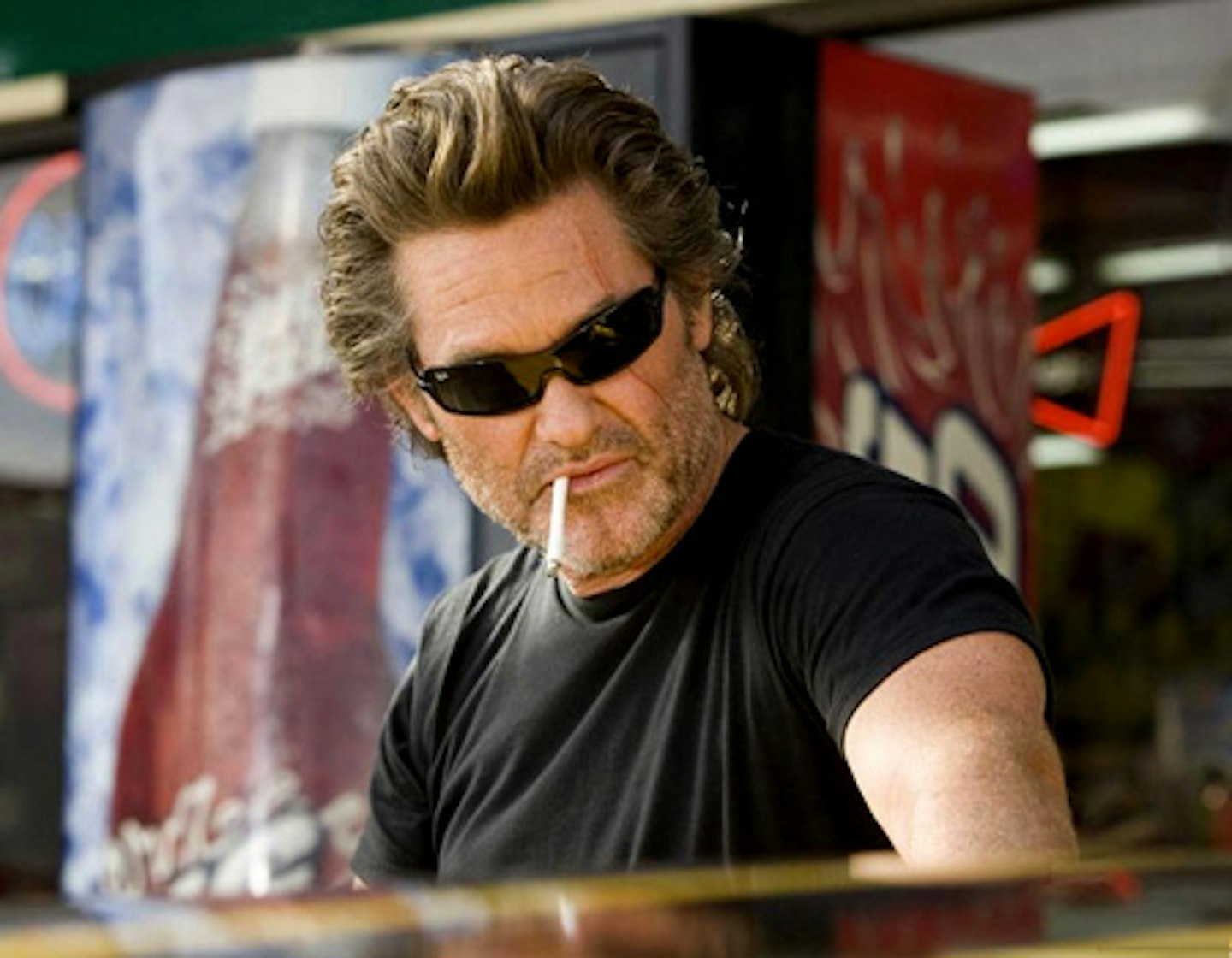
Originally earmarked for the equally quiff-capable Mickey Rourke, the role of Death Proof's follically-fantastic Stuntman Mike went to Kurt Russell whose Showaddywaddy 'do is one of a clutch of Seventies hairstyles in the Tarantino canon. Most were by design, some by accident: Samuel L. Jackson was originally going to wear an afro to play Jules in Pulp Fiction until a runner picked up a Jheri curl wig by mistake.
R – Resurrection
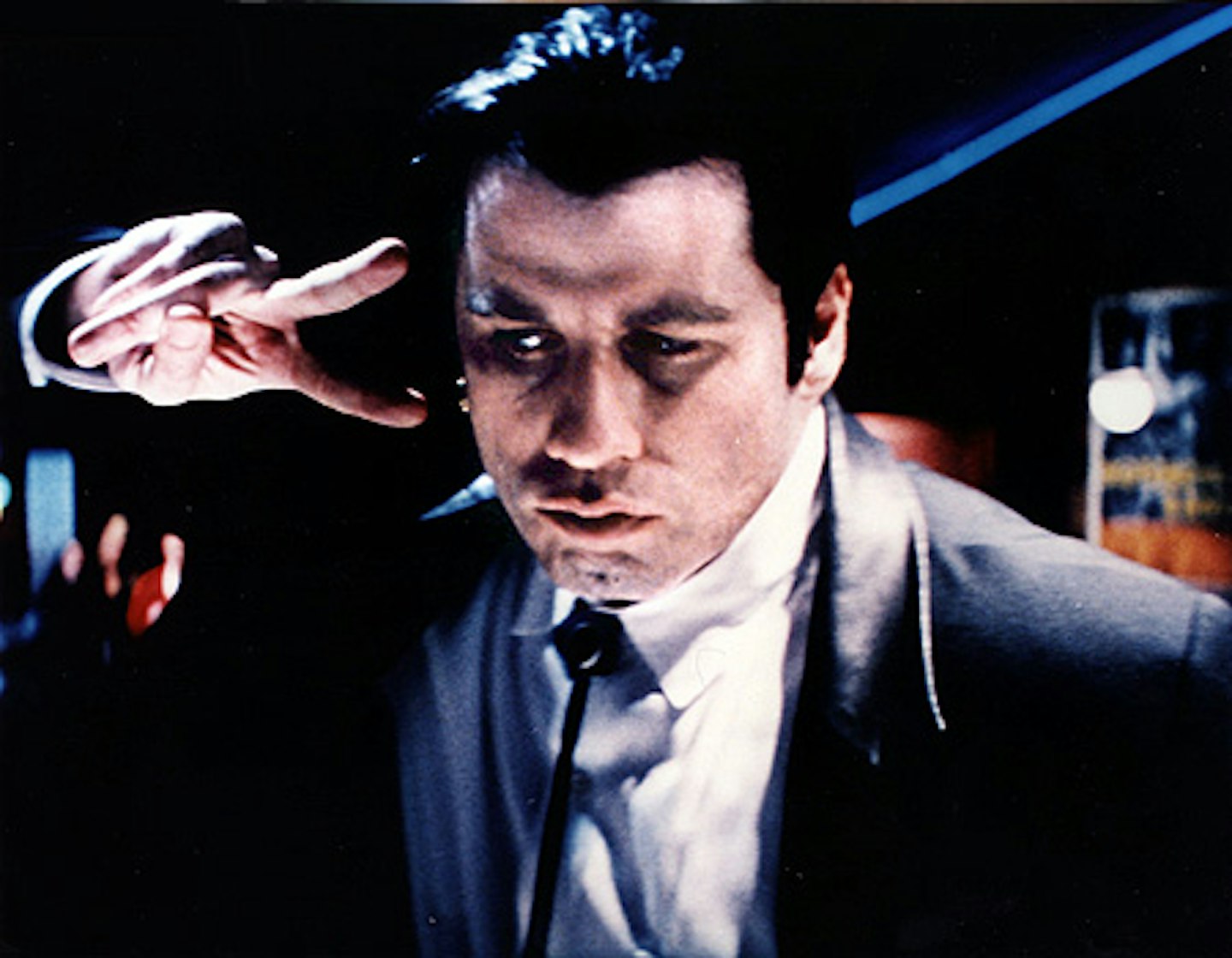
SITUATION VACANT: once-iconic actors fallen on small roles, hard times and receding hairlines. Hours long, pay variable, outfits awesome. Perks include zeitgeist-y dialogue and a potential fast-track back to the Hollywood hot list (see: J. Travolta, R. Forster, P. Greir, M.Myers). Contact Q. Tarantino, CA 90047.
S – Sally Menke
Who did Tarantino once describe as his "hands-down my number one collaborator"? Was it Samuel L. Jackson or Michael Masden, perhaps regular stuntwoman Zoë Bell or producer Harvey Weinstein? In fact, he was referring to his trusted editor Sally Menke, who cut all his movies from Reservoir Dogs until her untimely death in 2010. It quickly became common for cast and crew on a Tarantino set to say “Hi, Sally!” and wave to the camera during a blooper.
T – Trunk
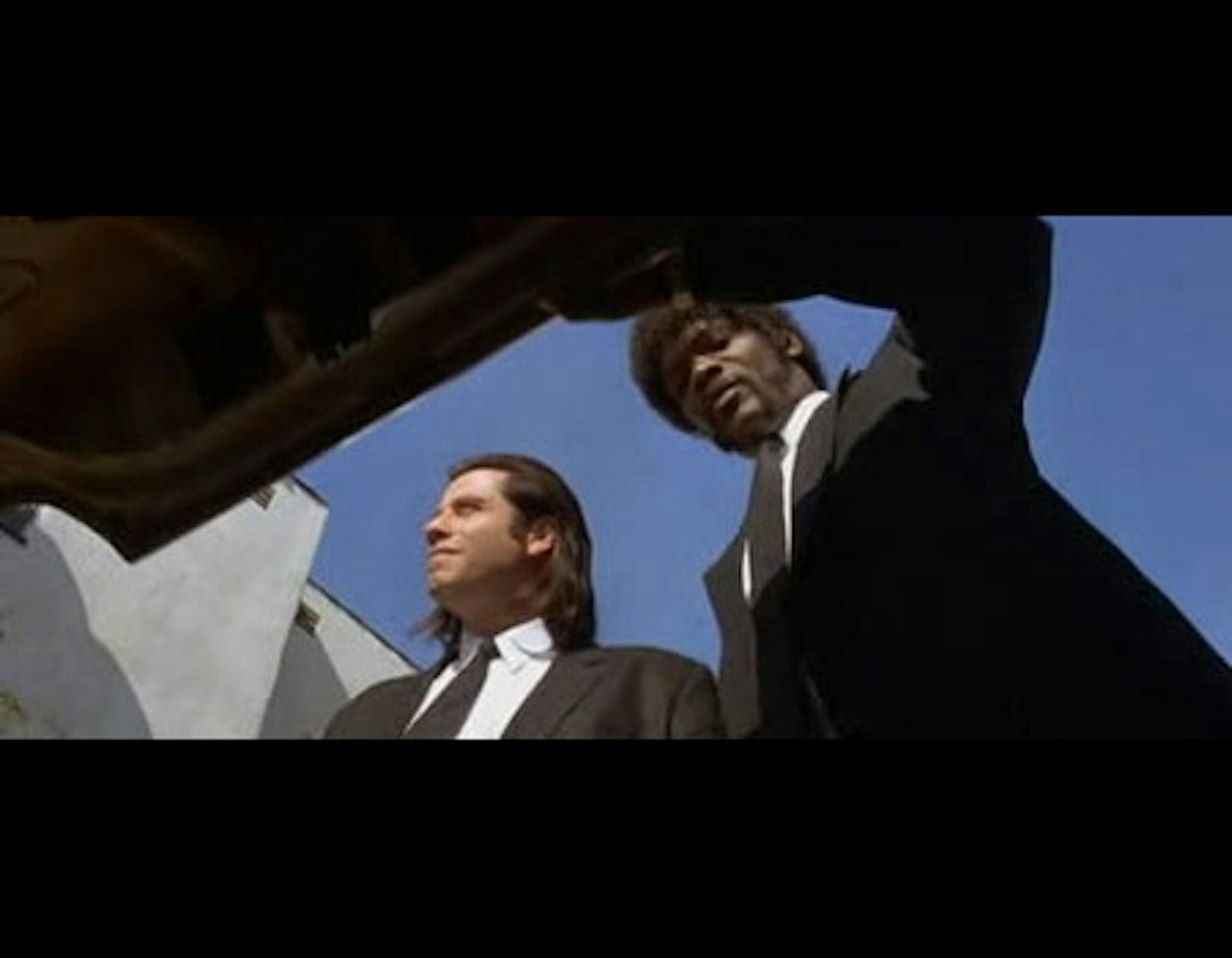
Like Leone's close-ups or De Palma's trackers, trunk shots are the little symbol that marks a movie out as uniquely Tarantino, as something - or more usually someone - is fetched from the boot of a car. Tarantino didn't invent the shot (the first use was probably Richard Brooks' adaptation of In Cold Blood back in 1966 and Scorsese put the technique to elegant use in Goodfellas), but it's become one of his recognisable motifs. Some claim it's his sly wink to fans; he just shrugs and asks, "Where else would you put the camera?"
U – Uma
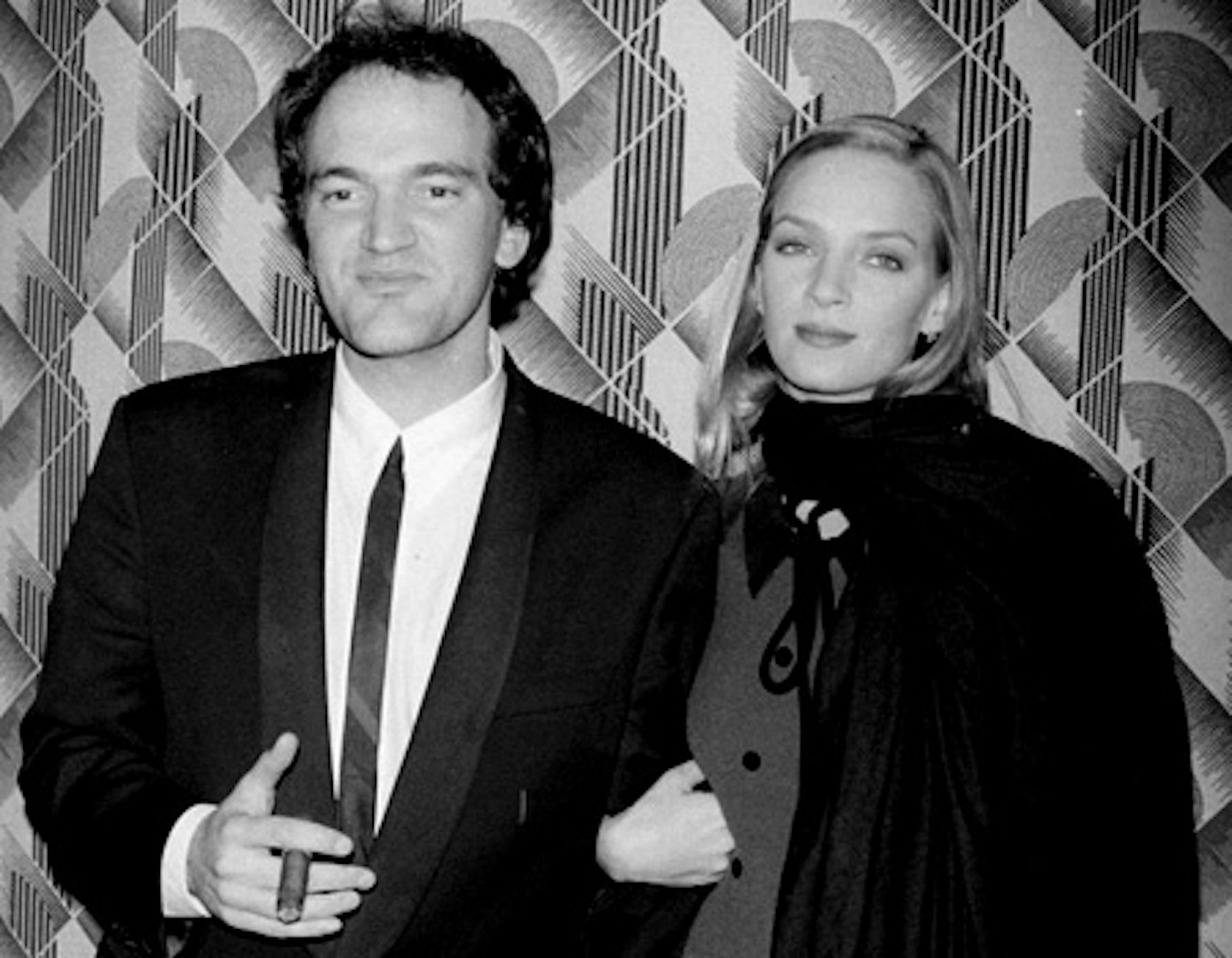
Almodovar has Penelope Cruz, Robert Rodriguez has Selma Hayek, but it's Uma Thurman who rocks QT's world. He conceived Kill Bill with Thurman in mind while filming Pulp Fiction, but mothballed it until he bumped into her a few years later. "I've always considered her my actress," he said. "So I went back home that weekend and dug out the few pages that I'd written on Kill Bill and decided, what the heck, 'I'll work on them'." When Thurman's pregnancy delayed production, he wouldn't consider anyone else for The Bride, although there were moments when she'd wished he had: she later described the shoot as "the most work I have ever done in my life".
V – Violence
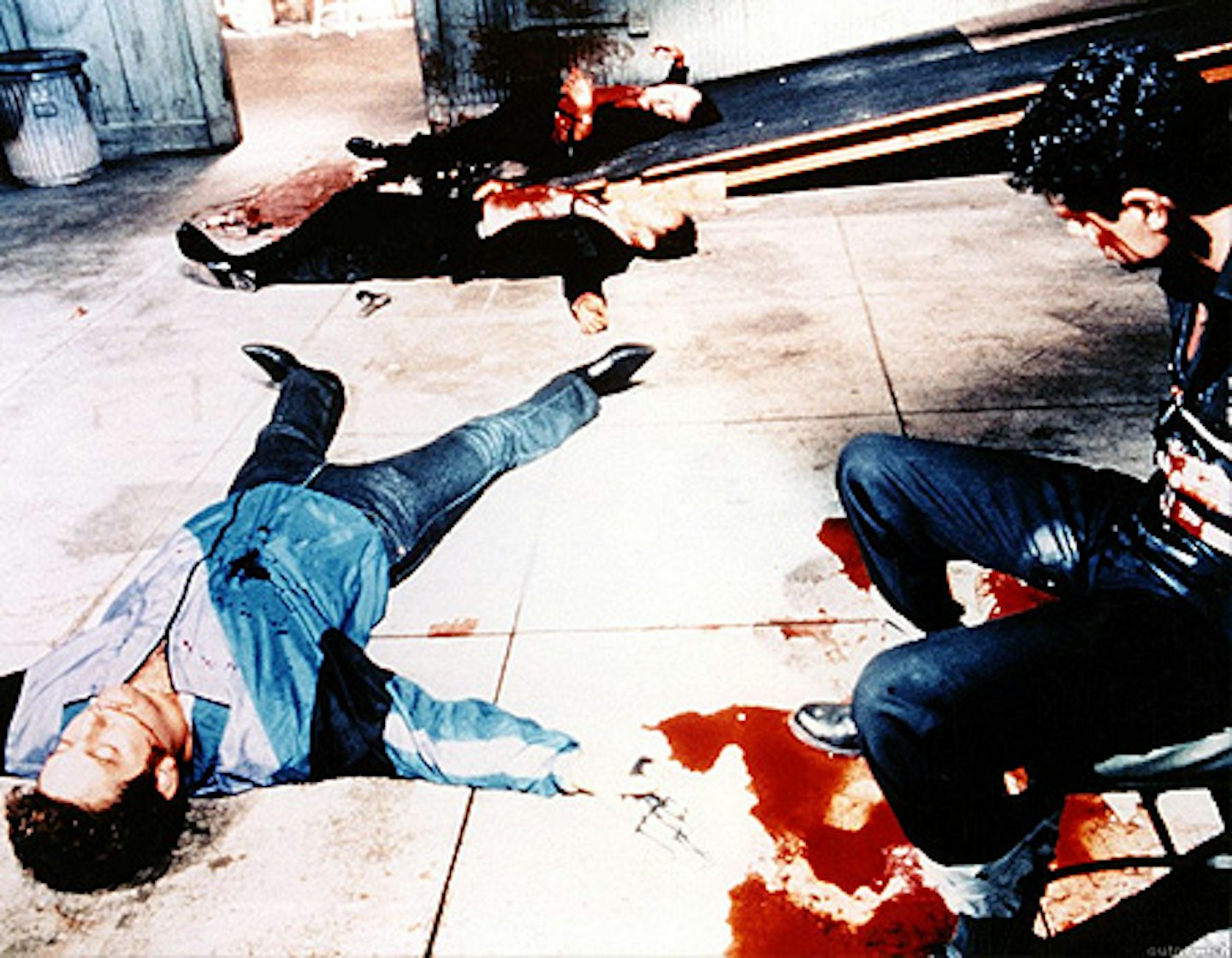
From the anime slaughter of Kill Bill Vol.1 to Pulp Fiction's rape scene, the use of implied violence means Tarantino's most brutal moments usually take place off-screen. Usually, but not always. "It's what Edison invented the camera for," says the man himself. Kill Bill's sword fight ends in a bloodbath and Basterds features enough scalping and skull-smashing to give Middle England a coronary. But it's that ear that people still talk about. When Reservoir Dogs was released, people walked out during the scene. Michael Madsen later revealed that he'd struggled to film it. The reaction suited QT just fine. "For some people the violence is a mountain they can't climb. That's OK. It's not their cup of tea. But I am affecting them. I wanted that scene to be disturbing."
W – Western
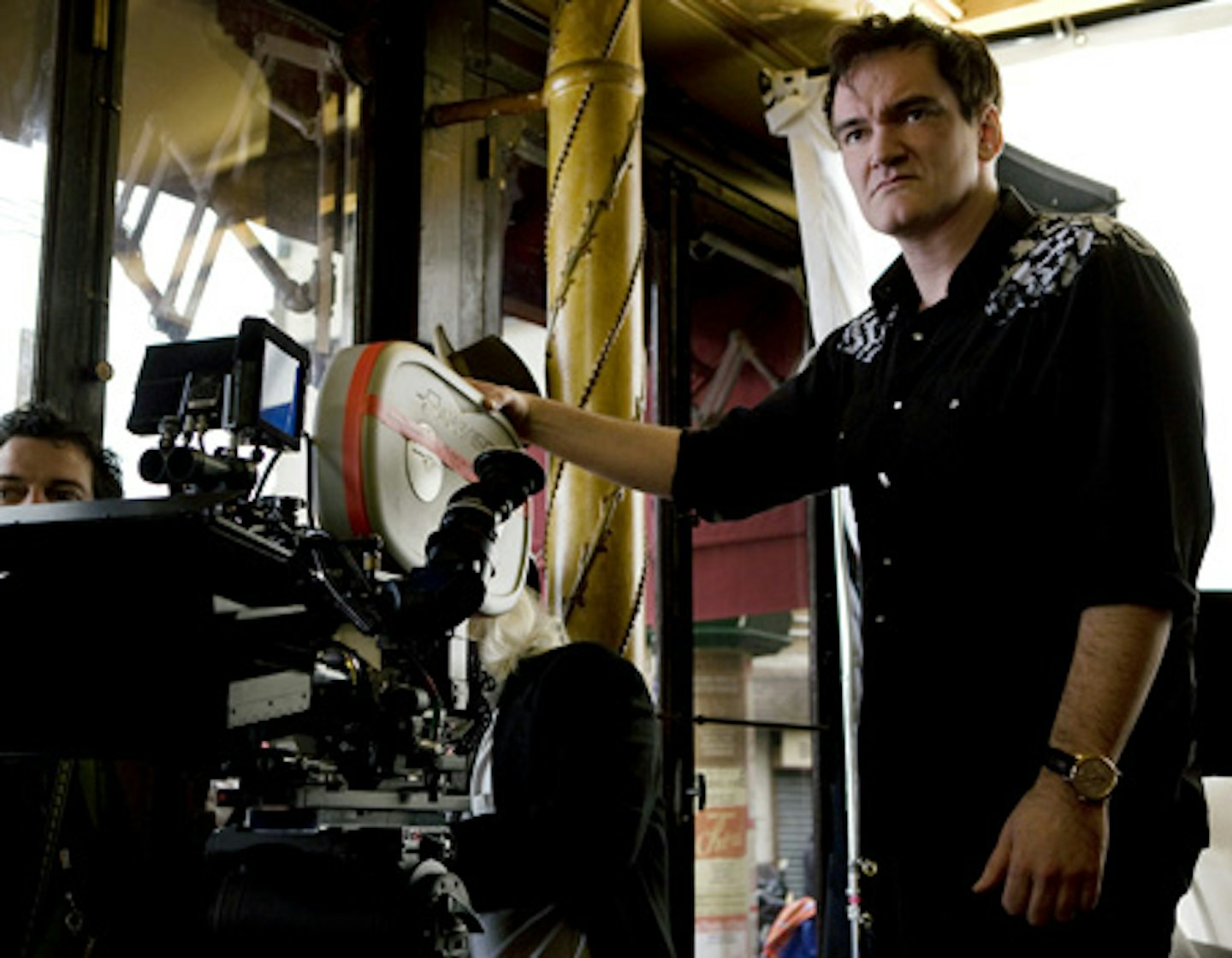
The Western is a favourite genre of Tarantino’s, and with Django Unchained, The Hateful Eight, and to some extent Inglourious Basterds, it’s a space he occupies quite comfortably. Ask him to name his favourite example of the genre and prepare for a lengthy list that starts with Sergio Leone and runs through to Duccio Tessari and Eugenio Martín. Near the top would be Sergio Corbucci's seminal pasta-blaster Django, a B-movie classic with a muddy, bloody take on the old West, complete with ear-slicing, Klansmen and a man with a Gatling Gun who does the housework. How Tarantino is that?
X – X-ploitation
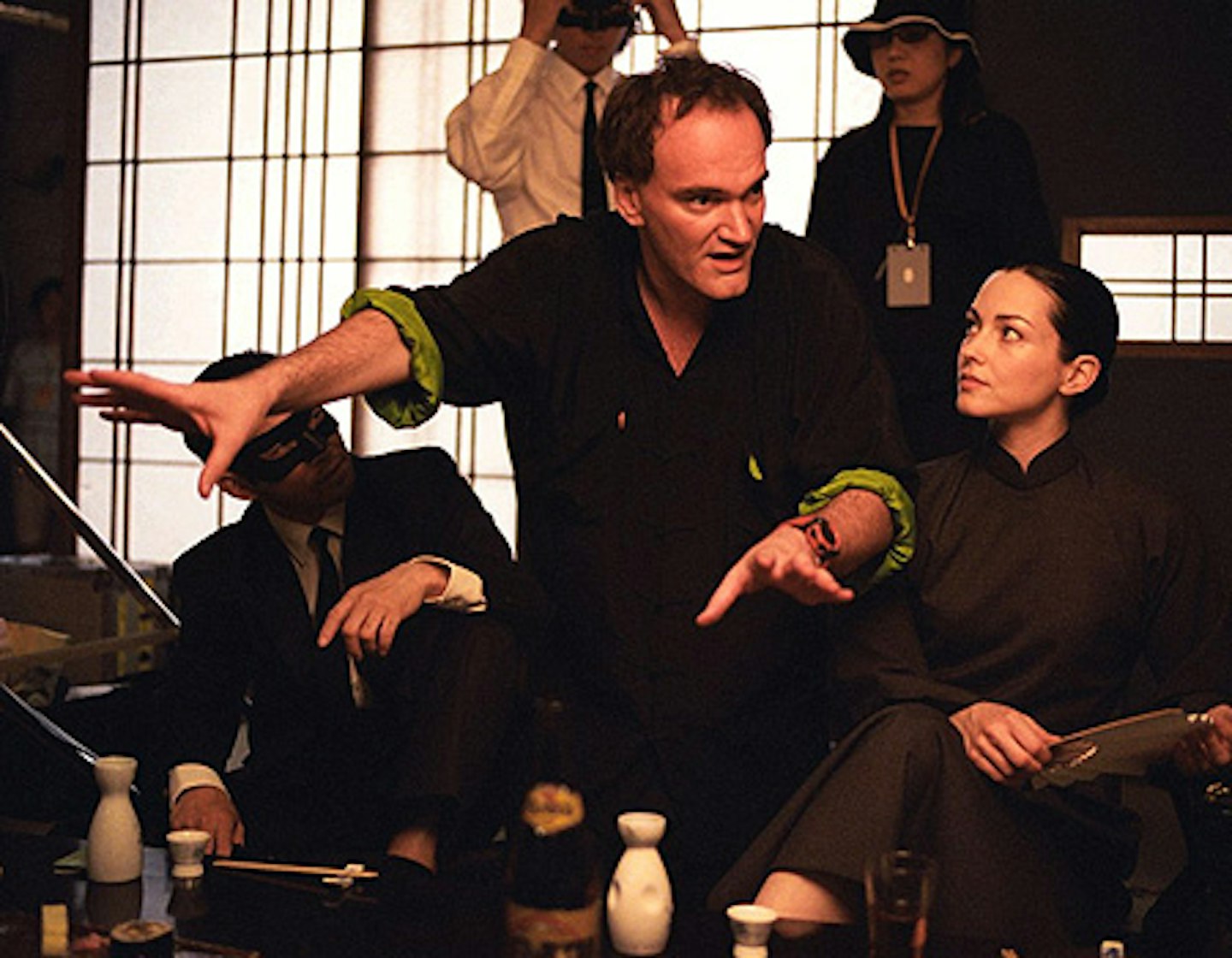
While many people immersed themselves in punk rock, perms and Pete's Dragon, Tarantino spent the '70s glued to the low-budget, big impact movies of Exploitation cinema. They made a big impression on him because filmmakers don't come more 'sploitation crazy than QT, the man who homaged blaxploitation with Jackie Brown, carsploitation with Death Proof, and Nazploitation - or 'kosher porn' (copyright: Eli Roth) - with Basterds.
Y – Yellow Jumpsuit
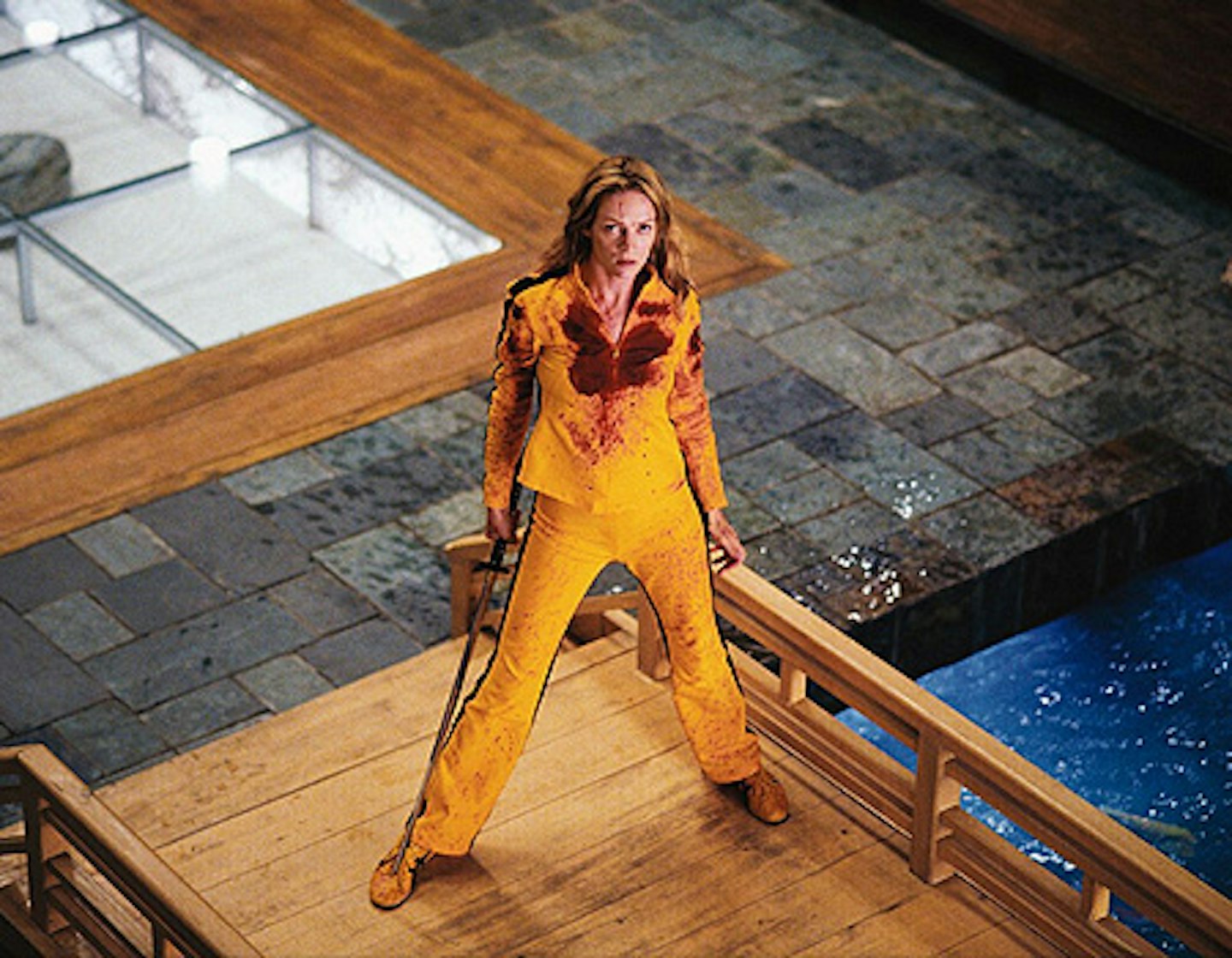
Iconic, stylish, and the solution to many a fancy dress dilemma, Tarantino's costumes are, let's face it, damned cool. Some of them, like The Bride's Bruce Lee jumpsuit, are homages, but many, including those Italian-cut Reservoir Dogs suits, owe themselves to costume designer Betsy Heimann. For Dogs, she was given $10,000 and told to go crazy... "It was basically me with my tape measure at the thrift store." Heimann was also behind that Mia Wallace blouse-slacks-wig combo. "Uma's 6 feet tall, and every pair of pants I put on her was too short. So I said, 'Let's just go with it. Let me cut off another two inches.' Every designer in the world has claimed credit for her white blouse, because they knocked it off." So there.
Z – Zed

"Zed's dead, baby. Zed's dead." Zed finds out the hard way that you don't mess with Marcellus Wallace. The scene that plays out in basement of Pulp Fiction's pawn shop - complete with gimps, ball-gags, and enough whips and chains to equip a 12th century castle - could only have been conceived by someone who'd seen Deliverance at the age of eight. Peter Greene's warped security guard is named after Sean Connery's character in Boorman's zany sci-fi Zardoz, thanks to the S&M-style costume Connery wore for the role, complete with red leather nappie and the kind of moustache more commonly found on a Mexican revolutionary.
